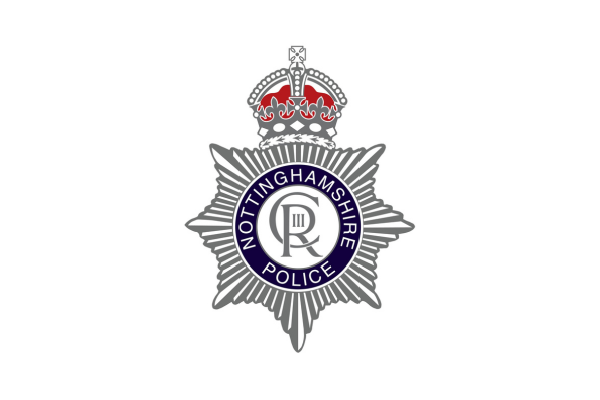
Scammers posing as police officers and bank officials have tricked residents into handing over thousands of pounds – after spending hours duping them over the phone.
People are encouraged to speak to vulnerable relatives and neighbours about courier fraud following a spate of incidents in recent weeks, including one case where an elderly Mansfield woman lost nearly £10,000.
Courier fraud comes in many forms and usually involves fraudsters telephoning a potential victim, claiming to be from their bank, the police, or another law enforcement authority.
The most common forms of courier fraud are:
- Bank card expiry: Fraudsters claim to be from the victim’s bank and say their card is no longer valid. They ask for the pin number and then send a “courier” to collect the card before using it for fraudulent purposes.
- Purchasing high end items: The suspects pretend to be police officers and ask the victim to help with an undercover operation by purchasing expensive items like watches, jewellery, and gold. Once the item is bought, the victim will hand over the item to the criminal.
- Counterfeit cash/bank investigation: A person claiming to be a police or banking official informs the victim that they need to help with a banking corruption investigation. The victim is told to withdraw a large amount of money and the cash is picked up later by a courier to “check for fingerprints or to identify counterfeit bank notes”. Alternatively, the victim may be asked to package the cash up and send it by post to an address provided by the fraudster.
- Computer takeover: The fraudster telephones the victim, pretending to be from their internet service provider, saying that they have had an issue with their internet connectivity, and they are due compensation. The victim is persuaded to download a remote access application, giving the suspects access to their home computers. The fraudster persuades the victims into thinking that they have been paid too much compensation and the victims then withdraw cash to pay the money back, which is later collected by a courier.
Detective Sergeant Tara Clapperton, of Nottinghamshire Police’s Fraud Protect and Prevent team, said courier fraud causes severe harm to victims and so urged people to be vigilant against scams.
She said:
“These fraudsters can be very persuasive and use a variety of tactics to convince you to withdraw cash, transfer money or hand over bank cards.
"We've had one case recently where a fraudster targeted a 77-year-old lady in a phone call that lasted for four hours. This shows just how devious these fraudsters are becoming and we are seeing an increasing number of victims who have been emotionally manipulated to lower their defences.
“It is really important people remain vigilant against these cold-hearted crimes. Bank accounts can be emptied in minutes and life savings lost. This places enormous stress on families and ruins people’s lives.
“Victims are typically elderly, as in these cases, and we are asking anyone with an elderly relative, loved one, friend or associate to please make them aware of this type of scam.”
DS Clapperton said people can mitigate the risk of becoming a victim of courier fraud by remembering some straightforward advice:
“The police and banks will never call you out of the blue and ask you to withdraw money or transfer any funds.
“Likewise, the police will also never ask you to take part in an investigation.
“If the person on the phone asks you not to tell anyone about what they’re saying to you, this is another sign that you are being scammed and you should tell a trusted family member or friend.
“If in any doubt, hang up and contact the police or your bank yourself. The police can be contacted by calling 101 and your bank can be contacted using the phone number on the back of your bank card.”
Please remember that:
• Police officers, banks and other organisations such as HMRC will never call people in this way and ask you to withdraw money or disclose personal or financial information. If someone does do this, please hang up – it will be a scam.
• If someone calls claiming to be a police officer, ask for their ID number and police force. Wait at least five minutes before verifying details with the appropriate Force by calling 101 – do not use any number they provide unless you can confirm it as genuine. Ensure the call has disconnected as scammers will often leave the line open or use another phone altogether. A genuine police officer will not mind waiting while you check their identity (it’s a sign that it is a scam if the person becomes pushy or stresses urgency).
• Take a step back from everything and take a few moments to think. Speak to a trusted friend or relative for their opinion before agreeing to anything. The fraudster’s tactic is often to keep the victim busy talking and isolated. They stress that they should not tell anyone else about the call.
• Your bank or the police will never send a courier to your home to collect cash, bank cards, PINs or other valuable goods.
• If you are a friend, relative or carer of someone you think might be vulnerable to this type of scam, please speak to them about this advice. You might be the only person who can stop them from being scammed.
If you or someone you know has been a victim of fraud, report it to us by calling 101. If a crime is in progress, dial 999.
You can make yourself aware of this type of scam and how to protect yourself by visiting the Action Fraud website (https://www.actionfraud.police.uk/) or by calling them on 0300 123 2040.
Please also take time to have a read through the below fraud prevention booklet; a useful resource that provides details of specific scam and fraud types – along with crime prevention advice.



 Mansfield 103.2 News -29-04-25
Mansfield 103.2 News -29-04-25



